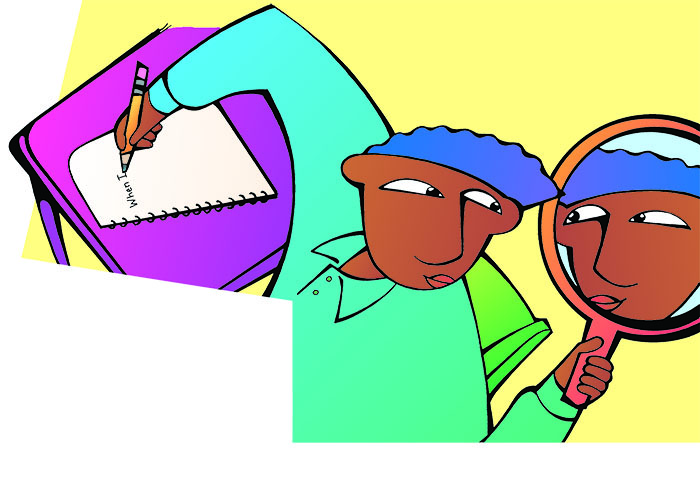
“The narrative is the first story, the primal story, from which all others come. It is your story.” These thoughts by writer John Rouse speak clearly to the importance of narrative writing. I share them because I, too, feel that narrative writing is a valuable or, dare I say, the most important element in an effective writing program.
I know the common refrain from teachers: I can’t worry about narrative writing; that’s just storytelling. I have enough trouble covering the academic forms (explanatory, persuasive, responses to literature, etc.) students will be tested on.
Narrative writing offers too much to be treated like a stray dog. The primary purpose in anyone’s life is to make sense of experiences as they come to him or her: What was that conversation all about? Should I try out for the track team? Would I like to be a nurse? And what better way for someone to explore these experiences than to write about them? The linear nature of writing—recording one word after another—prompts reflecting and forming new understandings.
According to learning theorist James Britton, in-school learning should embrace this need, especially in the writing classroom. Doing so makes an important connection between a student’s personal life and the school experience. Unfortunately, schools often function as fortresses, carefully protecting their territory—the dissemination of facts and formulas. After too many years in the fortress, many students have only one thing on their minds: How can I escape?
Using Journals
Promoting narrative writing doesn’t take much. Start by implementing journal writing. (Good for you, if you already do this.) Have students write in their journals every other day at the start of the class period. Encourage them to explore their foremost thoughts and feelings, but also suggest that they save sensitive issues for at-home journals. (To underscore the importance of journal writing, you should write along with the students.)
On off days, have students review their writing, underlining thoughts or ideas that they especially like, that surprise them, that they would like to explore further. They could also discuss their writing with a partner or two. (In this way, the entries function as very early drafts of narratives.)
View minilesson for starting a journal.
Celebrating Their Lives
After a few weeks, have students select one entry to develop more fully into a complete personal narrative. Remind them that they are communicating something about their own lives, so they will want to tell a good story, one that may take some time to get just right. (Repeat this process—journal entries to personal narratives—as often as you like.)
Important: Sharing is an essential part of the narrative-writing process. I recommend whole-class sharing sessions because they help build a community spirit in the classroom and make students feel connected. (Deal with reluctant readers as best you can.)
View minilesson for discovering narrative strategies.
Expanding Their Vision
Once students understand the essentials of narrative writing, they will be more than willing to experiment with other forms of writing. Obviously, the personal narrative is first cousin to short fiction and plays. All three are forms of storytelling. And some students may be drawn to poetry as a means of expressing their thoughts and feelings.
Now here’s a surprise: With a firm foundation in the narrative form, students can write “academically” about issues that are important to them. The co-authors of Learning to Write/Writing to Learn—John S. Mayher, Nancy Lester, and Gordon M. Pradl—call story writing “the jumping off point—the way in” to explanatory and persuasive writing.
Ideas for academic essays can come from recurring themes in the students’ narratives, or they can come from the final summary or reflection in one particular narrative. And, of course, support for a thesis can come from the specific details in the narratives.
A final thought: Diarist Anais Nin says, “We write to taste life twice.” It’s the second taste that’s so important and needs to be honored and encouraged.